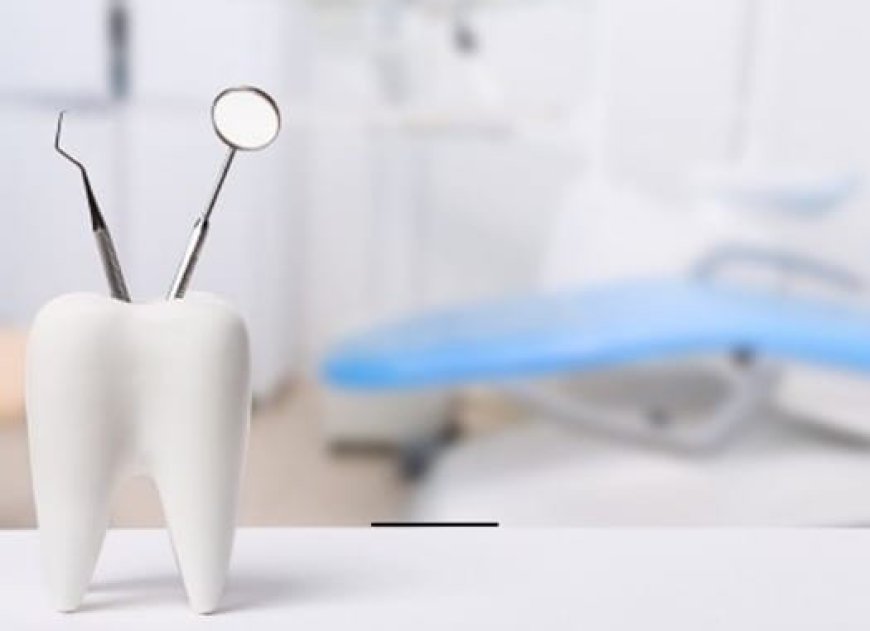Need an Emergency Dentist in North London? Here’s What to Do

Dental emergencies can strike at any time, and they often bring both pain and stress. Whether you’re dealing with a sudden toothache, a broken tooth, or even a knocked-out tooth, the key to handling these situations effectively is knowing what steps to take. If you're in North London and facing a dental emergency, here’s a straightforward guide on what you should do.
1. Stay Calm and Assess the Situation
First, take a deep breath. Dental emergencies are stressful, but staying calm is essential. Begin by assessing the situation. Is the pain manageable, or is it severe? Are there signs of injury, like bleeding or a broken tooth? This will help you gauge the urgency of the problem.
For instance, if you’ve lost a tooth, try to find it, gently rinse it (but don’t scrub), and place it in a container with milk or water to keep it viable until you can see a dentist. If you’ve cracked a tooth or your crown has come loose, try to keep the area clean and avoid chewing on that side. The severity of the situation will determine how quickly you need professional help.
2. Contact an Emergency Dentist Right Away
Once you've assessed the situation, it's time to reach out to a trusted emergency dentist in North London. Don’t wait, as dental issues tend to worsen without timely treatment. Many dental practices offer emergency care or have dedicated on-call staff for urgent cases.
When calling, explain your symptoms clearly. The dentist will likely give you specific advice and schedule an appointment as soon as possible. If the issue is severe, such as intense pain or a lost tooth, getting seen promptly is crucial.
3. Prepare for Your Appointment
After scheduling your emergency appointment, make sure you’re fully prepared. Bring relevant information like your medical history and details of any medications you're currently taking. If you’ve suffered trauma (like a knocked-out tooth), bring the tooth with you—stored in milk or saline to preserve it.
If you're experiencing pain, over-the-counter pain relief such as ibuprofen can help temporarily ease discomfort, but don’t apply hot or cold compresses to the affected area unless advised by the dentist. It’s also a good idea to avoid eating or drinking until after your appointment if the area is sensitive.
4. Trust Your Emergency Dentist for Effective Care
Upon arrival at the emergency dentist, you’ll receive a thorough examination, and the focus will be on providing immediate relief and addressing the problem. Depending on the type of emergency, treatments could range from a filling, a root canal, or the reimplantation of a tooth.
Emergency dentists are skilled at assessing the situation quickly and effectively, and their goal is to get you out of pain and restore your smile with as little discomfort as possible. While some dental emergencies may require follow-up treatments, your dentist will give you a clear plan of action.
5. Prevent Future Dental Emergencies
After your emergency has been resolved, it’s a good time to talk to your dentist about preventive care to avoid future problems. For example, if you’ve suffered a knocked-out tooth during sports or activities, consider getting a custom mouthguard to protect your teeth.
Routine checkups are essential for catching issues before they become emergencies. Regular visits can help prevent problems like cavities, gum disease, or weakened teeth that might lead to more serious issues down the line.
Conclusion
Dealing with a dental emergency can be overwhelming, but knowing how to act quickly can make all the difference. Whether it’s a painful toothache or a more serious dental injury, getting in touch with an emergency dentist in North London right away will help you receive the care you need to resolve the issue swiftly and safely.
If you’re in need of urgent dental care or want to discuss preventive treatments, it’s always a good idea to reach out to a trusted local practice like The Finchley Dentist for support and expert care.
